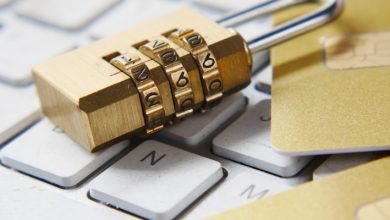What is a Paper Wallet? Is It Still Safe to Use?

- Understanding the concept of a paper wallet
- Pros and cons of using a paper wallet for storing cryptocurrency
- How to create and secure a paper wallet
- Are paper wallets still a viable option in today’s digital age?
- Comparing paper wallets to other forms of cryptocurrency storage
- Tips for safely using and storing a paper wallet
Understanding the concept of a paper wallet
A paper wallet is a form of “cold storage” for cryptocurrency, essentially a physical document that contains all the necessary information to generate private keys. This means that the wallet’s details are not stored digitally, making it less vulnerable to hacking or cyber attacks. Instead, the keys are printed on a piece of paper, making it a secure way to store cryptocurrency offline.
When using a paper wallet, it is important to keep the document in a safe place, such as a safe deposit box or a secure location at home. It is also crucial to ensure that the paper is not damaged or destroyed, as this could result in the loss of access to the cryptocurrency stored in the wallet. Additionally, it is recommended to make multiple copies of the paper wallet and store them in different secure locations to mitigate the risk of loss.
While paper wallets are considered to be safe from online threats, they are not without their drawbacks. For instance, paper can degrade over time, potentially leading to the loss of the keys. Furthermore, paper wallets are not as convenient as digital wallets, as they require manual input of the keys to access the cryptocurrency. Despite these limitations, many people still choose to use paper wallets as a secure way to store their cryptocurrency offline.
Pros and cons of using a paper wallet for storing cryptocurrency
When considering the use of a paper wallet for storing cryptocurrency, there are several pros and cons to take into account.
- Pros:
- Enhanced security: Paper wallets are considered one of the most secure ways to store cryptocurrency as they are not connected to the internet, making them immune to hacking.
- Offline storage: By keeping your cryptocurrency offline, you reduce the risk of cyber-attacks and unauthorized access to your funds.
- Easy to create: Paper wallets can be easily generated using various online services or software, making them accessible to even non-tech-savvy individuals.
- Cost-effective: Paper wallets are a low-cost solution for storing cryptocurrency, as they only require a piece of paper and a printer.
- Control over your funds: With a paper wallet, you have full control over your private keys, eliminating the need to trust third-party exchanges or online wallets.
- Cons:
- Risk of physical damage: Paper wallets can be easily lost, stolen, or damaged, leading to the permanent loss of your cryptocurrency funds.
- Not user-friendly: Paper wallets may not be suitable for individuals who are not comfortable with handling private keys and managing their own cryptocurrency storage.
- Lack of support: If you encounter any issues with your paper wallet, there may be limited resources available for troubleshooting or recovery.
- Security risks: Improperly generating or storing a paper wallet can expose your private keys to potential security risks, compromising the safety of your funds.
Ultimately, the decision to use a paper wallet for storing cryptocurrency depends on your individual preferences and risk tolerance. While paper wallets offer enhanced security and control over your funds, they also come with their own set of challenges and vulnerabilities. It is essential to weigh the pros and cons carefully before deciding if a paper wallet is the right storage solution for your cryptocurrency holdings.
How to create and secure a paper wallet
To create a *paper wallet*, follow these steps for an added layer of security:
1. **Generate a new wallet address**: Use a trusted website or software to create a new Bitcoin wallet address.
2. **Print the wallet**: Print the wallet details, including the public and private keys, on a piece of paper. Make sure to use a secure printer and consider printing multiple copies for backup.
3. **Secure the paper wallet**: Store the paper wallet in a safe place, such as a safe deposit box or a secure home safe. Keep it away from moisture and direct sunlight to prevent damage.
4. **Avoid digital storage**: Do not store a digital copy of the paper wallet on your computer or online. This eliminates the risk of hacking or malware attacks.
5. **Use a passphrase**: Consider adding an additional layer of security by encrypting the paper wallet with a passphrase. This provides extra protection in case the physical paper is compromised.
By following these steps, you can create and secure a paper wallet for your cryptocurrency holdings. Remember to keep it safe and only share the information with trusted individuals to ensure the security of your funds.
Are paper wallets still a viable option in today’s digital age?
In today’s digital age, the question arises: are paper wallets still a viable option for storing cryptocurrency? While many people have turned to digital wallets and hardware wallets for convenience and security, paper wallets still have their place in the world of cryptocurrency storage.
Paper wallets, which are essentially physical copies of your public and private keys, offer a high level of security as they are not connected to the internet. This means that they are immune to hacking and online attacks. Additionally, paper wallets are easy to create and can be stored in a safe place such as a safe deposit box or a home safe.
Despite their advantages, paper wallets do have some drawbacks. For example, they are not as convenient as digital wallets since you have to physically access your paper wallet in order to make a transaction. Additionally, paper can degrade over time, potentially causing your keys to become unreadable.
In conclusion, while paper wallets may not be as popular as they once were, they still offer a secure way to store cryptocurrency for those who prioritize security over convenience. It is important to weigh the pros and cons of paper wallets against other storage options to determine the best solution for your individual needs.
Comparing paper wallets to other forms of cryptocurrency storage
When comparing paper wallets to other methods of storing cryptocurrency, it is essential to consider the advantages and disadvantages of each option. Paper wallets offer a secure way to store digital assets offline, away from potential cyber threats. However, they require careful handling to prevent loss or damage. On the other hand, hardware wallets provide convenience and security through their encrypted storage and user-friendly interfaces. While online wallets offer easy access to funds from any device with an internet connection, they are more vulnerable to hacking and phishing attacks. Ultimately, the choice between paper wallets and other storage methods depends on individual preferences for security, accessibility, and ease of use. It is crucial to weigh the pros and cons of each option before deciding on the best solution for storing your cryptocurrency.
Tips for safely using and storing a paper wallet
When it comes to safely using and storing a paper wallet, there are a few important tips to keep in mind:
- Keep your paper wallet in a safe and secure location, such as a locked safe or a safety deposit box. This will help protect it from theft, fire, or other damage.
- Make sure to create multiple copies of your paper wallet and store them in different secure locations. This will help ensure that you don’t lose access to your funds if one copy is lost or destroyed.
- Do not store your paper wallet in a digital format, such as a photo on your phone or computer. Digital files can be easily hacked or stolen, putting your funds at risk.
- When using your paper wallet to make a transaction, only use it in a secure and private location. Avoid using it on public Wi-Fi networks or shared computers, as these can be vulnerable to hacking.
- Consider using a tamper-evident bag or seal to store your paper wallet. This will help you detect if anyone has tampered with your wallet and accessed your funds without your knowledge.
By following these tips, you can help ensure that your paper wallet remains safe and secure, allowing you to use it with confidence for storing your cryptocurrency.



